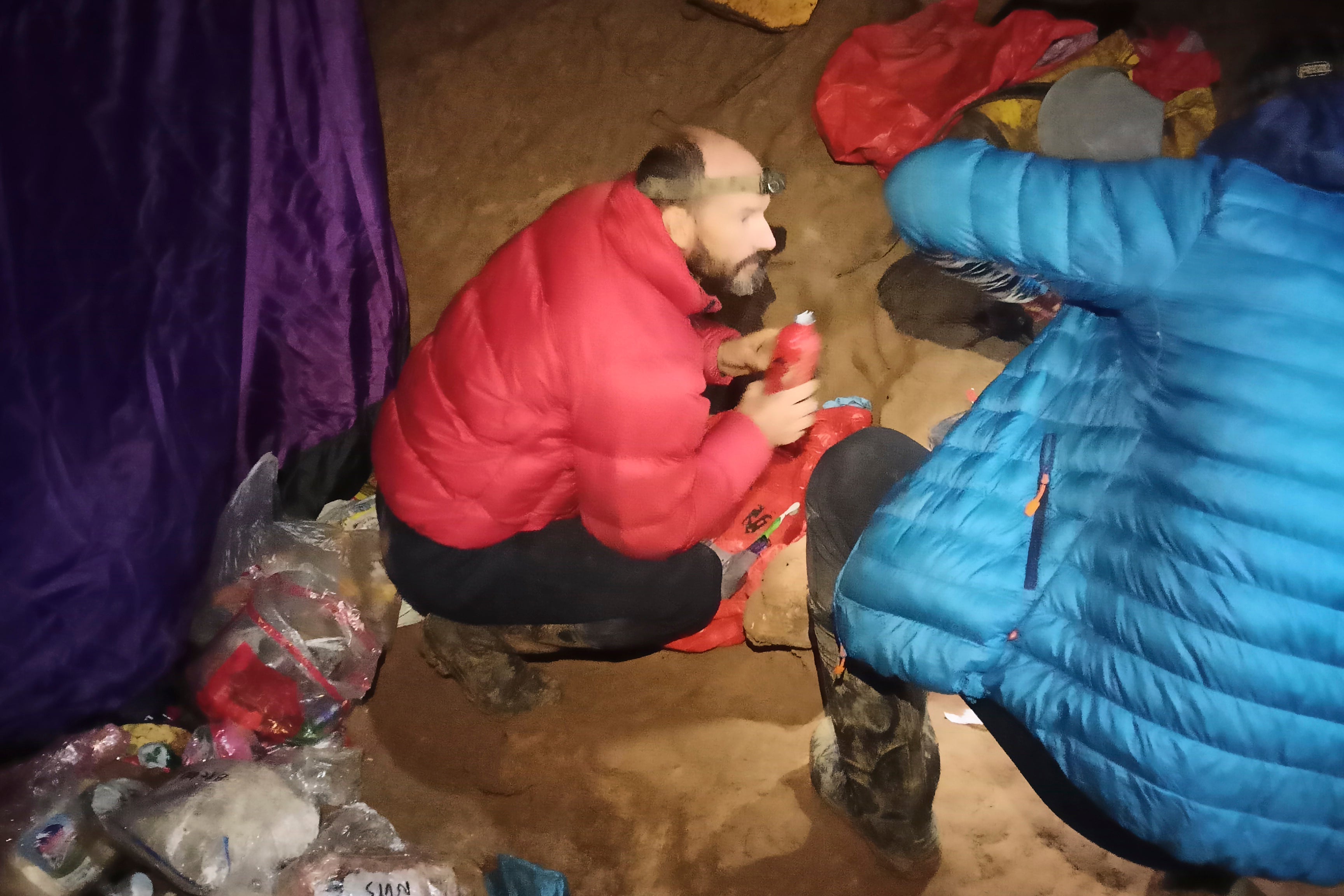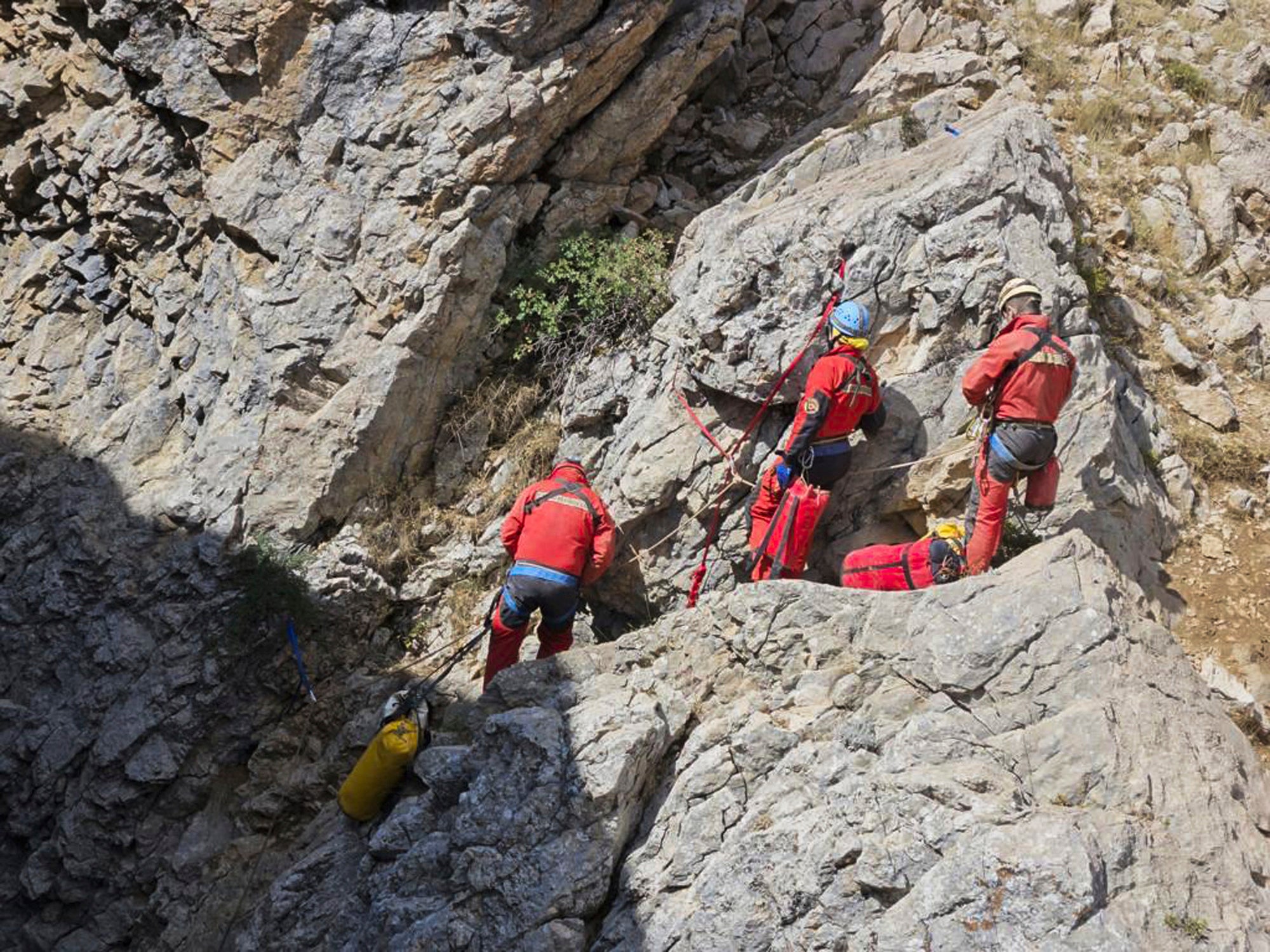What is a speleologist? Mission to extract US explorer trapped 3,400 feet deep in Turkish Cave underway
The Cave Exploration Society says Morca cave is the 74th deepest cave in the world and the third deepest in Turkey - here’s everything you need to know about Speleology
Your support helps us to tell the story
From reproductive rights to climate change to Big Tech, The Independent is on the ground when the story is developing. Whether it's investigating the financials of Elon Musk's pro-Trump PAC or producing our latest documentary, 'The A Word', which shines a light on the American women fighting for reproductive rights, we know how important it is to parse out the facts from the messaging.
At such a critical moment in US history, we need reporters on the ground. Your donation allows us to keep sending journalists to speak to both sides of the story.
The Independent is trusted by Americans across the entire political spectrum. And unlike many other quality news outlets, we choose not to lock Americans out of our reporting and analysis with paywalls. We believe quality journalism should be available to everyone, paid for by those who can afford it.
Your support makes all the difference.It’s been a race against time to save an explorer who has been trapped almost 3,400 feet below the cave’s entrance in the Taurus Mountain region of Turkey.
The Cave Exploration Society says Morca cave is the 74th deepest cave in the world and the third deepest in Turkey.
Mark Dickey, 40, suffered from stomach bleeding during an expedition with a handful of others, including three other Americans, in the Morca cave the European Association of Cave Rescuers said.
Now, more than 150 workers from Bulgaria, Croatia, Hungary, Italy, Poland and Turkey are on a mission to help rescue the experienced caver with a challenging attempt to bring him to the surface expected to begin imminently.
While rescuers, including a Hungarian doctor, have reached and treated the Speleologist, it could still be days and possibly weeks before they are able to get him out of the cave.
Yusuf Ogrenecek of the Speleological Federation of Turkey said that one of the most difficult tasks of cave rescue operations is widening the narrow cave passages to allow stretcher lines to pass through at low depths.
In a hopeful message to the caving community and the Turkish government, Mr Dickey shared his gratitude for everyone’s efforts to rescue him.
“The caving world is a really tight-knit group and it’s amazing to see how many people have responded on the surface," Mr said Dickey.
“ ... I do know that the quick response of the Turkish government to get the medical supplies that I need, in my opinion, saved my life. I was very close to the edge.”
Here is everything we know about speleology
What is a “Speleologist”?

In simple terms, a Speleologist studies all aspects of caves including their geology, biology, hydrology, and history, according to Start Caving.com.
Speleologists often research how the cave is formed and how It changes – this is known as speleogenesis and speleomorphology.
“Speleology is an interdisciplinary field that combines a lot of scientific skills,” Start Caving says.
The field itself is quite niche and oftentimes when cave explorers do go on an expedition, it can take hours or even days.
What is required during the job?

Given that it is quite a rigorous job, Speleologists should remain calm at all times when inside the cave.
If you want to go into this field you must be a good problem solver, a good general knowledge and broad scientific skill set, have common sense and be research-oriented.
How much do Speleologist’s make?
The average salary in the US is roughly around $59,000 according to Start Caving and Speleologists working in the mining industry earn the most - making about $115,000.
In the UK, geologists earn about £33,000 or $42,000 per year, with a total range of £20,000 to £78,000 ($25,500 to $100,000).
Who are some famous speleologists?
Emile Riviere (1890)
Édouard-Alfred Martel – the father of modern speleology
Robert de Joly – successor of Martel
Henry Bruil – French archaeologist
George Veni – speleo-hydrologist
William Elliot – speleo-biologist
Bob Richards – cartographer
Additional reporting from agencies




Join our commenting forum
Join thought-provoking conversations, follow other Independent readers and see their replies
Comments